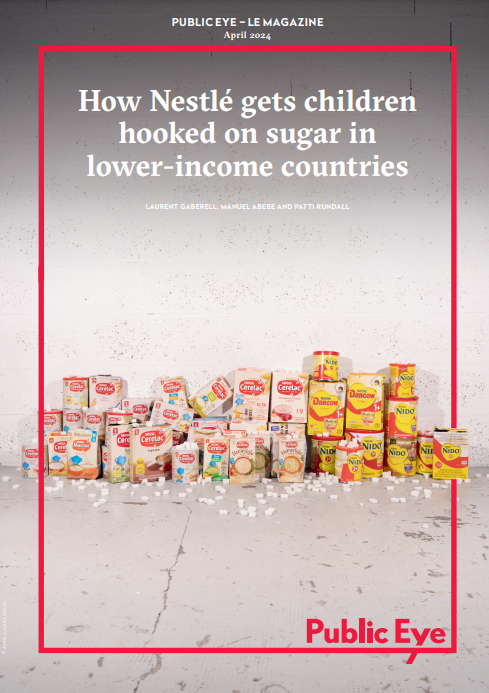Nestlé’s leading baby-food brands, promoted in low- and middle-income countries as healthy and key to supporting young children’s development, contain high levels of added sugar
In Switzerland, where Nestlé is headquartered, such products are sold with no added sugar. These are the main findings of a new investigation by Public Eye and the International Baby Food Action Network (IBFAN), which shed light on Nestlé’s hypocrisy and the deceptive marketing strategies deployed by the Swiss food giant.
Two of the best-selling baby-food brands marketed by Nestlé in low- and middle-income countries contain high levels of added sugar, while such products are sugar free in its home country, Switzerland. These are the key findings of an investigation by Public Eye and the International Baby Food Action Network (IBFAN). On the eve of its Annual General Meeting, pressure mounts on Nestlé to put an end to this unjustifiable and harmful double standard, which contributes to the explosive rise of obesity and leads children to develop a life-long preference for sugary products.
Fifty years on from the start of the infant formula scandal, Nestlé claims to have learned from the past while doing everything it can to keep its world leadership in infant and young child nutrition. The food giant controls 20 percent of the baby-food market, valued at nearly $70 billion. With more than $2.5 billion in world sales in 2022, Cerelac and Nido are some of Nestlé’s best-selling baby-food brands in low- and middle-income countries. The multinational aggressively advertises these products as essential to children’s healthy development in its main markets in Africa, Asia, and Latin America.
Read the full report available in English, Portuguese, Spanish and French.


